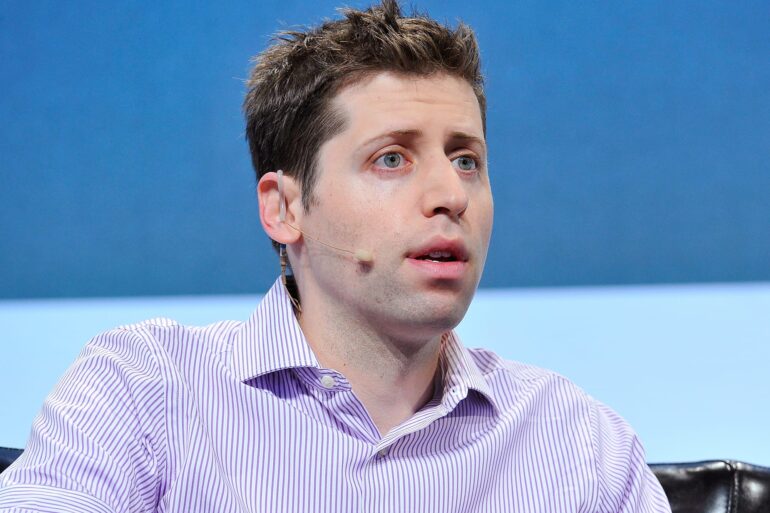TL;DR:
- OpenAI CEO Sam Altman’s AltC Acquisition Corp plans to take Oklo, a nuclear-fission startup, public through a SPAC with an $850 million valuation.
- Oklo aims to create small-scale microreactors for affordable and scalable power generation using nuclear fission.
- Altman’s interest in nuclear power is driven by its potential to provide clean, reliable, and abundant energy to support the growing demands of AI.
- Altman is also an investor in Helion, a nuclear fusion startup, further emphasizing his focus on nuclear energy.
- The deal is expected to close in late 2023 or early 2024, marking a significant step forward for Oklo and the nuclear energy sector.
Main AI News:
In a bold move that underscores his growing commitment to nuclear power, Sam Altman, the CEO of OpenAI, is making strides in the field. Altman’s AltC Acquisition Corp recently announced its plans to launch Oklo, a pioneering nuclear-fission startup focused on small reactors, into the public sphere through a special purpose acquisition corporation (SPAC), with an impressive valuation of approximately $850 million.
The announcement of Oklo’s intention to go public came on Tuesday, as they revealed their merger plans with Altman’s AltC Acquisition Corp. Notably, Altman also serves as the chairman of Oklo’s board, demonstrating his profound involvement in the venture.
Oklo’s cutting-edge technology hinges on nuclear fission, an intricate process that involves the collision and splitting of atoms, ultimately releasing a significant amount of heat energy. Fission has long been the driving force behind nuclear energy plants worldwide. Oklo’s primary objective is to develop compact microreactors that generate affordable power on a large scale, opening up a plethora of possibilities.
Altman expressed his enthusiasm about the partnership, stating, “I am delighted to announce this collaboration, which presents an opportunity for AltC’s shareholders to become stakeholders in Oklo and support the initial deployment of the Aurora powerhouse. I firmly believe that abundant intelligence and energy are the two fundamental prerequisites for a remarkable future. Given its potential to offer clean, dependable, and cost-effective energy on a massive scale, I have been deeply intrigued by the capabilities of nuclear power for quite some time.”
While Altman is widely recognized for his contributions to the field of artificial intelligence, such as the development of ChatGPT, his foray into nuclear power signifies his recognition of its pivotal role in propelling AI forward. As AI continues to expand, it necessitates substantial energy consumption. Consequently, Altman has also invested in Helion, a nuclear fusion startup that has recently struck a deal to supply power to Microsoft by 2028. Although this technology remains elusive in practice, the theoretical prospects are captivating.
The resurgence of investments in clean energy and the rising popularity of SPACs is becoming increasingly evident after a brief hiatus.
SPACs, essentially shell companies that raise capital and publicly list themselves to merge with private entities, serve as a vehicle for taking companies public. Investors are drawn to these entities with hopes of cashing in on exponential gains once the merger is finalized and the company goes public. However, it is essential to acknowledge the inherent risks associated with SPACs. A pertinent example is President Trump’s Truth Social, a social media venture, which encountered significant obstacles in its attempt to go public via a SPAC deal involving Digital World Acquisition Corp (DWAC). The collapse of the deal was precipitated by stumbling blocks, allegations of insider trading, and securities fraud. At its zenith, DWAC stock reached a value of $175 per share, driven by the anticipation of the merger. However, at the time of this publication, it has plummeted to $13.40. Neither Trump nor his company were implicated in these events.
The Wall Street Journal highlights that while it is uncommon for an investor to employ their own SPAC to take their company public, it is not unheard of. Such instances may raise concerns about whether shareholders are reaping the full benefits they deserve.
Oklo anticipates that the deal will be finalized by late 2023 or early 2024, solidifying their path toward a promising future in the realm of nuclear energy.
Conclusion:
Sam Altman’s strategic move to take Oklo public and his focus on nuclear power demonstrates his recognition of the pivotal role it plays in addressing the energy needs of AI technologies. By investing in nuclear-fission and nuclear-fusion startups, Altman is positioning himself at the forefront of the clean energy revolution. This development not only signifies the potential growth of the nuclear energy market but also highlights the increasing importance of sustainable and reliable energy sources in driving technological advancements. The successful public debut of Oklo would likely attract further attention and investments to the nuclear energy sector, spurring innovation and propelling the market forward.

